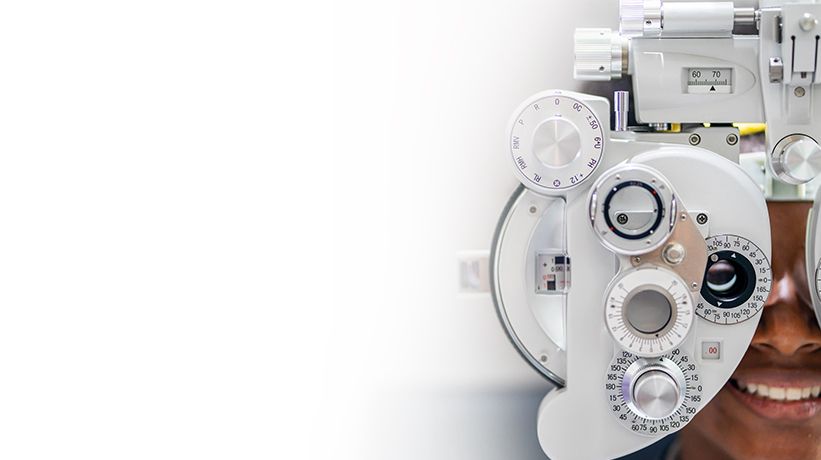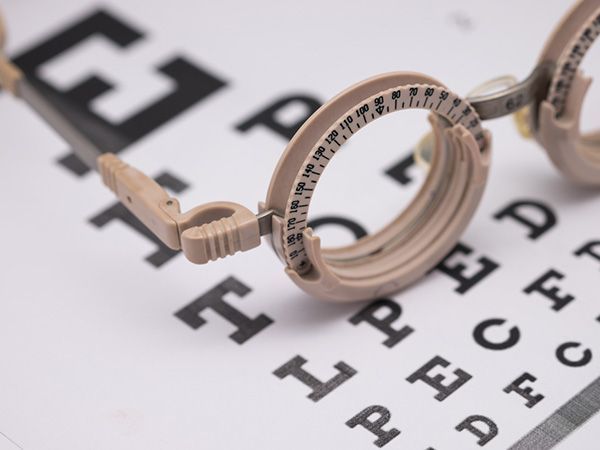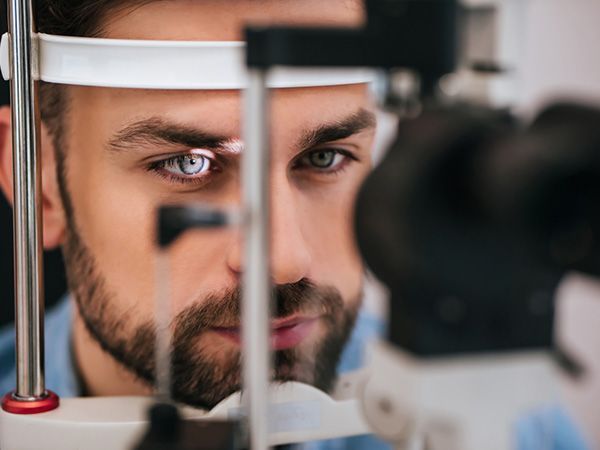
While many people undergo annual eye checks, what commonly passes as a routine eye exam is often just a basic screening. This limited evaluation offers only a glimpse into the overall health of your eyes, akin to gauging your well-being with a quick blood pressure test rather than a thorough physical examination.
The significance of comprehensive eye exams cannot be overstated. These thorough examinations support optimal eye health. To protect your eyes, schedule an eye exam in Lafayette today.
What Are the Limitations of a Vision Screening?
When you schedule a simple eye exam, you're likely signing up for a vision screening. These tests primarily assess your distance vision, overlooking crucial aspects like color vision, depth perception, and peripheral vision.
Notable drawbacks of these screenings include:
- 1. Focus on Distance Vision: Vision screenings emphasize distance vision, a small part of overall eye health. Only comprehensive eye exams can provide the detailed insights your doctor needs.
- 2. Lack of Comprehensive Assessment: Ordinary eye exams in Lafayette concentrating solely on visual acuity may overlook problems like poor depth perception or color vision until they significantly impact your life.
- 3. Conducted by Non-Specialists: Vision screenings can be performed by individuals without specialist training, even in schools or workplaces. Even if conducted by a qualified physician, they might lack the intricate knowledge of specialist eye health.
- 4. Inadequate Equipment: Vision screenings often rely on basic eye charts. Only a trained and reputable eye doctor possesses the specialized equipment and nuanced understanding needed for reliable testing, including considerations like lighting and testing distances.
In contrast, a comprehensive Lafayette eye exam delves into every facet of eye health, providing a thorough understanding of their individual and collective performance. This broader perspective increases the chances of identifying potential vision issues at an early stage.
Why You Should Choose Mountain Top Eye Care for Your Eye Exam
When it comes time to schedule a Lafayette eye exam, you'll undoubtedly encounter several options. At Mountain Top Eye Care, we stand out from the rest for our comprehensive eye exams and follow-up care, which are supported by:
Renowned Expertise: Our practice specializes in the intricacies of eye health. Led by Dr. Melinda Rodriguez, we’re experts in various niches, from pediatric eye care to myopic management in later years. Our commitment to ongoing education ensures you always receive top-notch care.
A Sense of Community: Your eye exam at Mountain Top Eye Care marks the beginning of a lasting relationship with eye professionals dedicated to helping you see the world clearly.
Cutting-edge Equipment: Experience advanced technological facilities at our office. Our state-of-the-art equipment enhances the precision and thoroughness of your examination.
At the end of the day, we take what our patients say seriously, which is why we are a firmly patient-centered clinic. Here’s what just some of our patients have to say:
What Are the Benefits of Undergoing a Comprehensive Eye Exam?
A Lafayette eye exam at our practice goes beyond assessing your vision; it provides a holistic view of your eye health, offering early detection and prevention of potential issues.
Here's why a comprehensive eye exam is essential:
Vision screenings focus solely on what you see. Our detailed eye exams examine both internal and external structures, providing a comprehensive view of your eye health.
The external exam covers the whites of your eyes, iris, pupil, eyelids, and eyelashes. Many systemic diseases manifest in these external elements, making this examination crucial for detecting non-vision-related conditions like hyperthyroidism.
Comprehensive eye tests delve into internal elements, including the retina and optic nerve, unveiling the inner workings of your eyes. Early warning signs of diseases such as hypertension and diabetes can be identified during this examination.
Your Lafayette eye exam focuses on color, depth, motion perception, contrast sensitivity, and visual acuity, providing a comprehensive assessment of your overall vision that ordinary screenings miss.
- Additional tests assess:
- Response of pupils to light.
- Eye focusing.
- Eye teaming.
- Eye movement.
- These tests evaluate how your eyes perform individually and as a team under conditions similar to your daily life.
Incorporating Health History
Did you know several common vision issues have a genetic component?
After your Lafayette eye exam, we go beyond the basics. We discuss your family history, overall health, diagnosed conditions, medications, and lifestyle factors.
Our holistic approach transforms exams into more than just a one-time event; they become a foundation for a comprehensive eye care plan, maximizing your vision while preventing premature degradation.

Our Dedication to Comprehensive Eye Care
Mountain Top Eye Care stands as the premier destination for holistic eye care, serving generations of Lafayette families and newcomers to the Centennial State.Here's why our approach sets us apart:
- Continuous Learning: We're committed to staying at the forefront of eye care. Our team actively pursues ongoing education, incorporating the latest discoveries and technologies into our comprehensive eye exams and follow-up care.
- Community Initiatives: More than just a clinic, Mountain Top Eye Care is an integral part of the Lafayette neighborhood. When you search for an "eye exam near me," you'll find us at the top. We actively contribute to the community through promotions on eye tests and initiatives promoting eye health awareness, making us an active part of Lafayette's landscape.
Recommended Eye Exam Frequency
Wondering how often to schedule a comprehensive eye exam in Lafayette?According to the American Optometric Association:
- Individuals with healthy vision, aged 18 to 60, should have a detailed eye test every two years.
- Patients aged 61 and over are advised to undergo testing annually.
However, if you have vision problems or other health conditions impacting your eyesight, your doctor will tailor a testing schedule that best suits your needs.

Schedule a Comprehensive Eye Exam in Lafayette
Are you ready to schedule your next eye exam?Check out our handy tools below.
Location Finder
Online Booking
Eye Health Education
Maintaining excellent eye health means taking proactive measures to protect your eyes and knowing the warning signs of developing issues.
Eye Diseases
Our comprehensive eye exams focus on early detection of common eye diseases, including:
- Cataracts: Age-related clouding of the eye lens causing blurry vision.
- Glaucoma: A leading cause of blindness, damaging the optic nerve.
- Age-Related Macular Degeneration (AMD): Causes central vision loss, prevalent in those over 50.
- Diabetic Retinopathy: A diabetes-related complication leading to vision problems.
- Refractive Errors: Corrected by prescription glasses, contact lenses, or surgery, including nearsightedness and farsightedness.
Eye Care Tips
Preserve your vision with these quick tips:- Eat a healthy diet rich in vitamins and minerals.
- Quit smoking.
- Stay hydrated; drink more water.
- Wear sunglasses in the sunshine.
- Always use your prescription lenses.
- Schedule regular comprehensive eye exams.
- Take breaks from the computer to reduce eye strain.
- Consult your doctor at the first sign of any vision problems.
Insurance and Payment Plans
We aim to make paying for eye care as straightforward and flexible as possible. See our insurance coverage and payment options below.
Accepted Insurance
Frequently Asked Questions
v
Vision screenings test visual acuity only. Comprehensive eye exams cover internal and external elements of the eyes, assessing their individual and collective functions, including depth perception, color vision, and contrast perception.
If your vision is healthy, schedule an exam every two years between ages 18 and 60. After 60, schedule yearly exams.
On average, a Lafayette eye exam can take 30 to 60 minutes.
Yes, your eyes will be dilated, and the effects can last from four to 24 hours. Expect blurry vision and light sensitivity during this time.
Yes, we accept many popular health insurance policies.
Yes, we accept many popular health insurance policies.
Your doctor will have your current prescription, but bringing them along is advisable.
The American Optometric Association recommends a child's first exam at six months.
Yes, conditions like hyperthyroidism and diabetes may manifest in the eyes.
Yes, comprehensive exams can spot early vision problems, even with perfect vision.
Yes, comprehensive exams can spot early vision problems, even with perfect vision.
Call your doctor immediately for an emergency test.
Generally, no. Some optometrists may use an autorefractor, but no X-rays are used during your Colorado eye exam.
If needed, your doctor will determine whether you can benefit from prescription glasses or contact lenses.
Yes, use our convenient online booking feature.


















